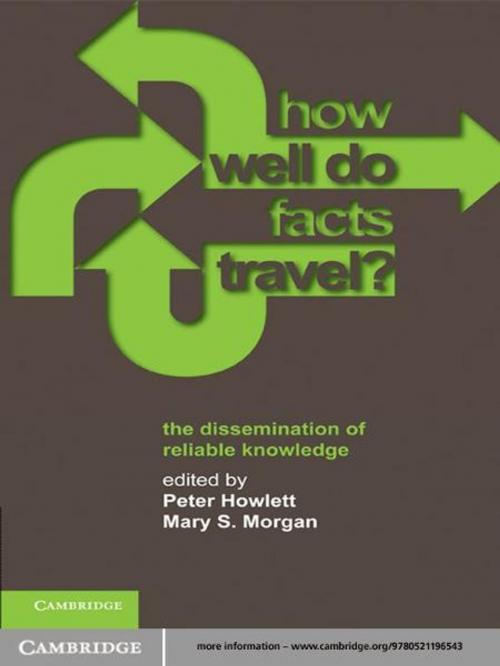How Well Do Facts Travel?
The Dissemination of Reliable Knowledge
Nonfiction, Science & Nature, Science, Other Sciences, Philosophy & Social Aspects, Social & Cultural Studies, Social Science, History| Author: | ISBN: | 9780511993602 | |
| Publisher: | Cambridge University Press | Publication: | November 15, 2010 |
| Imprint: | Cambridge University Press | Language: | English |
| Author: | |
| ISBN: | 9780511993602 |
| Publisher: | Cambridge University Press |
| Publication: | November 15, 2010 |
| Imprint: | Cambridge University Press |
| Language: | English |
This book discusses how facts travel, and when and why they sometimes travel well enough to acquire a life of their own. Whether or not facts travel in this manner depends not only on their character and ability to play useful roles elsewhere, but also on the labels, packaging, vehicles and company that take them across difficult terrains and over disciplinary boundaries. These diverse stories of travelling facts, ranging from architecture to nanotechnology and from romance fiction to climate science, change the way we see the nature of facts. Facts are far from the bland and rather boring but useful objects that scientists and humanists produce and fit together to make narratives, arguments and evidence. Rather, their extraordinary abilities to travel well shows when, how and why facts can be used to build further knowledge beyond and away from their sites of original production and intended use.
This book discusses how facts travel, and when and why they sometimes travel well enough to acquire a life of their own. Whether or not facts travel in this manner depends not only on their character and ability to play useful roles elsewhere, but also on the labels, packaging, vehicles and company that take them across difficult terrains and over disciplinary boundaries. These diverse stories of travelling facts, ranging from architecture to nanotechnology and from romance fiction to climate science, change the way we see the nature of facts. Facts are far from the bland and rather boring but useful objects that scientists and humanists produce and fit together to make narratives, arguments and evidence. Rather, their extraordinary abilities to travel well shows when, how and why facts can be used to build further knowledge beyond and away from their sites of original production and intended use.















